I am attempting to remove/extract zip codes from a character string. The logic is that I am grabbing things that:
- must contain exactly 5 consecutive digits OR
- must contain exactly 5 consecutive digits followed by a dash and then exactly 4 consecutive digits OR
- must contain exactly 5 consecutive digits followed by a space and then exactly 4 consecutive digits
The zip portion of string could start with a space but might not.
Here's a MWE and what I've tried. The 2 attempted regexes are based on this question and this question:
text.var <- c("Mr. Bean bought 2 tickets 2-613-213-4567",
"43 Butter Rd, Brossard QC K0A 3P0 – 613 213 4567",
"Rat Race, XX, 12345",
"Ignore phone numbers(613)2134567",
"Grab zips with dashes 12345-6789 or no space before12345-6789",
"Grab zips with spaces 12345 6789 or no space before12345 6789",
"I like 1234567 dogs"
)
pattern1 <- "\\d{5}([- ]*\\d{4})?"
pattern2 <- "[0-9]{5}(-[0-9]{4})?(?!.*[0-9]{5}(-[0-9]{4})?)"
regmatches(text.var, gregexpr(pattern1, text.var, perl = TRUE))
regmatches(text.var, gregexpr(pattern2, text.var, perl = TRUE))
## [[1]]
## character(0)
##
## [[2]]
## character(0)
##
## [[3]]
## [1] "12345"
##
## [[4]]
## [1] "21345"
##
## [[5]]
## [1] "12345-6789"
##
## [[6]]
## [1] "12345"
##
## [[7]]
## [1] "12345"
Desired Output
## [[1]]
## character(0)
##
## [[2]]
## character(0)
##
## [[3]]
## [1] "12345"
##
## [[4]]
## character(0)
##
## [[5]]
## [1] "12345-6789" "12345-6789"
##
## [[6]]
## [1] "12345 6789" "12345 6789"
##
## [[7]]
## character(0)
Note R's regular expressions are similar to other regex but are specific to R. This question is specific to R's regex not a general regex question.
